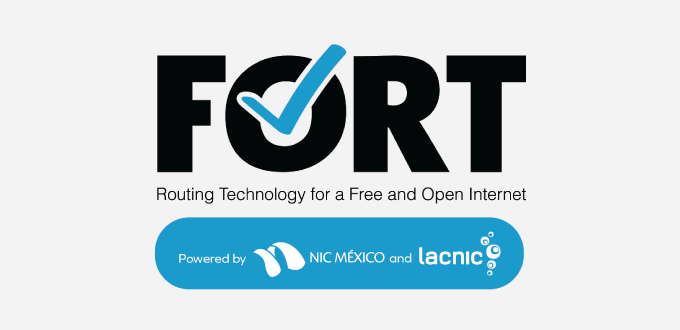FORT Project: Routing Security for a Free and Open Internet
28/03/2019

The Latin American and Caribbean Internet Addresses Registry (LACNIC) and NIC Mexico are launching the FORT initiative, a technical project for strengthening routing security and protecting online freedom in the region of Latin America and the Caribbean.
The initiative is being implemented with the support of the Open Technology Fund for the strengthening of critical infrastructure, a global enterprise that seeks to protect freedom of expression on the Internet. The goal of the project is to increase the routing system’s security and resilience by promoting RPKI resource certification through the implementation of a validator developed jointly by LACNIC and NIC Mexico. In addition, the initiative seeks to reduce the routing system vulnerabilities that are currently affecting user security and their free access to information on the Internet.
During the first part of the project, NIC Mexico and LACNIC’s R&D department —a team with extensive experience in working with resource certification software— will develop an RPKI validator. The second part of the project will include a deployment campaign for using this route validation software in at least four countries or subregions. Because the most widely used validator worldwide is currently that of RIPE NCC, the creation of a new RPKI validator will allow the RPKI validation system to become more robust, therefore increasing Internet routing security.
Finally, the third part of the project will study how routing security relates to freedom on the Internet. Infringements on the free use of the Internet have been detected in the region that are related to network infrastructure vulnerabilities. During this part of the project, LACNIC and NIC Mexico will work on creating a tool to document routing incidents in the region and will try to discover which incidents are intentional hijacking attempts. The tool will be open access and is expected to help identify regional route hijacking trends.
In addition, a report will be prepared on how intentional routing incidents affect user security and Internet freedom in the context of Latin America and the Caribbean. The report will present specific cases where intentional hijacking incidents have had an impact on Internet security, privacy and free access to information at the regional level.
The project will be led by an international team of LACNIC and NIC Mexico professionals, with the support of South American and European consultants. A web page will be created to notify the initiative’s progress.